*~Aragorn's Song - Lord Of The Rings~
Transliteration: Ye-hu-k-al
Phonetic Spelling: (ye-h-ho-o-k-al')
Definition: "the LORD is able"
Transliteration: Ye-hu-k-al
Phonetic Spelling: (ye-h-ho-o-k-al')
Definition: "the LORD is able"
J-o-b 3:5
H-E-B: עֲנָנָ֑ה יְ֝בַעֲתֻ֗הוּ כִּֽמְרִ֥ירֵי יֽוֹם׃
N-A-S: settle on it; Let the blackness of the day
KJ-V: dwell upon it; let the blackness of the day
I-NT: A cloud terrify the blackness of the day
Je-re-m-ia-h 36:32
HEB: וְיִרְמְיָ֜הוּ לָקַ֣ח ׀ מְגִלָּ֣ה אַחֶ֗רֶת וַֽיִּתְּנָהּ֮
NAS: another scroll and gave
KJV: another roll, and gave
INT: Jeremiah took scroll another and gave
Z-e-c-h-a-ri-a-h 5:1
HEB: וָֽאֶרְאֶ֑ה וְהִנֵּ֖ה מְגִלָּ֥ה עָפָֽה׃
NAS: [there was] a flying scroll.
KJV: and looked, and behold a flying roll.
INT: and looked and behold scroll a flying
Z-e-c-h-a-ri-a-h 5:2
HE-B: אֲנִ֤י רֹאֶה֙ מְגִלָּ֣ה עָפָ֔ה אָרְכָּהּ֙
NA-S: a flying scroll; its length
KJ-V: a flying roll; the length
I-NT: I see scroll A flying length
~Qi-y-r: Ki-r~
Strong's Concordance:
Original Word: קִיר
Part of Speech: Proper Name Location
Transliteration: Qi-y-r
Phonetic Spelling: (k'-ee-r)
Definition: "wall", a city in Moab
*~Christian Symbols and Christ Figures in:"The Lord of the Rings"
Christ-Like Traits of Gandalf, Aragorn, and Sam
| Gandalf | Aragorn | Sam Gamgee |
|---|---|---|
Dual identities: a common man and a powerful, mystical figure | Accepts his leadership role and embraces his destiny | Disciple-like; self-sacrificial and faithful |
Sacrifices himself for the rest of the Fellowship | Healing ability | Does not question his purpose |
Resurrected as "Gandalf the White" after his sacrifice | Overcomes evil; reigns in peace and righteousness | Literally carried Frodo up Mount Doom in the final stages of his journey to destroy the One Ring, helping him to complete his mission, and carrying his burden as he struggles to fulfill his purpose (as Jesus carried the struggling believer) |
1. Gandalf: The Wandering Pilgrim and Savior of Middle-earth
Gandalf is the dominant symbol of Christ in The Lord of the Rings; evidence of this can be found by first looking at how Gandalf came to Middle-earth and then considering his actions throughout the story. Gandalf was sent by the Valar from the land of Valinor to rescue the people of Middle-earth from evil and to protect them from Sauron.
Dual Identities
For those who have not read The Silmarillion, the Valar are basically the gods and goddesses of Middle-earth, and Valinor is the land of bliss in which they dwell. In The Silmarillion, Gandalf is introduced as a spirit named Olorin, and he only took on the flesh of men so that the people of Middle-earth would trust him and have faith in his mission. Similarly, Christ left heaven to come to Earth and took bodily form to rescue humanity from sin and Satan.
When we first meet Gandalf in Fellowship of the Ring, we encounter a wizened old man with a long, gray beard; bushy eyebrows; a flowing cloak; and a wooden staff worn from travel. Like Jesus, everywhere Gandalf goes, he seeks to help others, restore hope, and fight evil. He travels so extensively that the elves and men of Gondor call him Mithrandir, which means "the gray pilgrim." Also like Jesus, Gandalf possesses several different names that each have a unique meaning: Incanus, Lathspell, Mithrandir, Olorin, Tharkun, etc.
Tolkien presents a duality—Galdalf's as Olorin, the spirit who takes on earthly existence to save humanity, and the more lowly identity of "the gray pilgrim" and the images it conjures of the elderly, gray-bearded, bushy-eyebrowed man. Therefore, one can see where Tolkien began to craft a symbol of Christ—whose humility on Earth was counterbalanced by his sanctity—through the character of Gandalf.
Dual Identities
For those who have not read The Silmarillion, the Valar are basically the gods and goddesses of Middle-earth, and Valinor is the land of bliss in which they dwell. In The Silmarillion, Gandalf is introduced as a spirit named Olorin, and he only took on the flesh of men so that the people of Middle-earth would trust him and have faith in his mission. Similarly, Christ left heaven to come to Earth and took bodily form to rescue humanity from sin and Satan.
When we first meet Gandalf in Fellowship of the Ring, we encounter a wizened old man with a long, gray beard; bushy eyebrows; a flowing cloak; and a wooden staff worn from travel. Like Jesus, everywhere Gandalf goes, he seeks to help others, restore hope, and fight evil. He travels so extensively that the elves and men of Gondor call him Mithrandir, which means "the gray pilgrim." Also like Jesus, Gandalf possesses several different names that each have a unique meaning: Incanus, Lathspell, Mithrandir, Olorin, Tharkun, etc.
Tolkien presents a duality—Galdalf's as Olorin, the spirit who takes on earthly existence to save humanity, and the more lowly identity of "the gray pilgrim" and the images it conjures of the elderly, gray-bearded, bushy-eyebrowed man. Therefore, one can see where Tolkien began to craft a symbol of Christ—whose humility on Earth was counterbalanced by his sanctity—through the character of Gandalf.
Sacrifice
The symbolism of Christ becomes most evident in Gandalf’s actions as leader of the fellowship that was appointed by the Council of Elrond in Rivendell. When things become tough on the road, Gandalf and the entire fellowship are forced into the Mines of Moria in an attempt to pass under the Misty Mountains.
The slow journey through the mountains comes to a terrifying climax when the fellowship is chased by a fiery demon of the ancient world called a Balrog. In this heart-pounding moment, surrounded by fire, darkness, whizzing arrows, and terrified screams, Gandalf realizes that no one will escape the mines alive unless he puts his life at stake for his friends.
As Jesus once said, “Greater love hath no man than this, that a man lay down his life for his friend (John 15:13).” As the fellowship begins to cross the treacherous Bridge of Khazad-dûm, the Balrog closes in from behind, but Gandalf takes the rear guard and turns to face the monstrous beast alone.
Standing on the bridge surrounded by darkness, Gandalf faces his enemy of flame and shadow and willingly sacrifices his life to save his friends. Tears are shed by the Hobbits, hope is lost by others, and Aragorn’s heart wavers at the loss of his mentor. But Gandalf’s story does not end with his sacrifice.
Resurrection
After falling from the bridge, Gandalf chases the great demon through the deepest and darkest catacombs of Middle-earth, where he slays the Balrog. This final exertion of power causes Gandalf to die. Without Gandalf, the fellowship feels lost, but the Valar decide that Gandalf’s mission is not complete, and he rises from the dead more powerful and glorious than before.
He becomes Gandalf the White; no longer hidden under the veil of Gandalf the Gray, he reunites with Aragorn, Legolas, and Gimli in Fangorn Forest. Gandalf goes on to orchestrate the forces of good to defeat Saruman and Sauron by uniting Rohan, inspiring Gondor, and giving Frodo a chance to destroy the Ring and, therefore, Sauron, forever.
The direct symbolism in these actions are easily discerned—through the character of Gandalf, Tolkien attempts to show his readers the power of Christ’s sacrifice on the Cross, descent into darkness, resurrection, and glorification in his new body.
2. Aragorn: The Healer and Glorious King
Aragorn is a Ranger of the North, also known simply as "Ranger" (Aragorn's Ranger name was "Strider")—a mysterious, hooded individual who wanders the northern parts of Middle-earth and protects the lands he patrols, living in obscurity and never seeking glory for himself. He is a character torn by his desire to do what’s right and his fear of fulfilling his destiny of becoming King of Gondor.
Aragorn: An Everyman of the People
Tolkien describes Aragorn as someone that none of us would really be attracted to. As Tolkien would put it, “All that is gold does not glitter" (Fellowship of the Ring ch.10). This sounds very familiar to a passage of scripture that describes Jesus:
Many of you are probably thinking that I am crazy to assert that Sam is a Christ figure in the story. Admittedly, the symbolism of Sam is a bit trickier to see than that of Gandalf or Aragorn. Through Sam, readers catch a glimpse of the suffering Christ who loves his friends so passionately that he will never abandon them.
Sam is a rustic Hobbit who possesses incredible integrity and unique, simplistic wisdom. When Frodo leaves the fellowship to find Mordor on his own in chapter 10 of book 2 in Fellowship of the Ring, it is Sam alone who goes with Frodo into the land of darkness.
Sam, the Ever-Faithful
Sam refuses to be parted from Frodo and is always faithful to their friendship and the cause of good, even when Frodo becomes nearly unlovable and begins to succumb to the will and manipulation of Gollum. Gollum is the Hobbit-like creature who was tempted and corrupted by the One Ring's power long before it came into Frodo's possession, causing his everlasting love and obsession with it, which would ultimately lead to its ruin, as well as his own. As the Ring and Gollum gain more power over Frodo, Gollum manages to deceive Frodo into believing that Sam is plotting to take the Ring from Frodo.
~A-PROMISED VICTORY
(A RIDE ON EAGLE’S WINGS)~
Revelation 19:15(KJV)
~“And out of his mouth goeth a sharp sword, that with it he should smite the nations: and He shall rule them with a rod of iron: and He treadeth the winepress of the fierceness and wrath of Almighty God.”~
*~A PROMISED VICTORY
*(A RIDE ON EAGLE’S WINGS)
*FINAL ANSWERS ARE:
*SEALED.
*ETERNALLY IN.~
Victor Honoré Janssens
*IO RECOGNISED BY HER FATHER By Victor Honoré Janssens; oil on canvas; oil on canvas, in a carved and gilt wood frame; . Access more artwork lots and estimated & realized auction prices on MutualArt.
*~ IO RECOGNISED BY HER FATHER ...~
Earthquakes:C-i-burial..." *NO.TO, ANY:"CHRIST IRIS" BURIAL IRIS NOAH DOOR NOAH EVE II SION:SAVIOUR IRIS OMEGA NOAH ALPHA"
*GOD TOLD U THAT:I AM NOT:DEAD, *AND:THAT I WILL NOT:EVER:BE DEAD AS:WHO:IAM ETERNALLY SEALED IN, AS.
*TIMES EVERY DIRECTION AND EVERY, PLACE.
*TIMES INFINITY.~
*~A PROMISED VICTORY
(A RIDE ON EAGLE’S WINGS)~
*~A PROMISED VICTORY
(A RIDE ON EAGLE’S WINGS)~
1.
*~A ride on eagle’s wings
So airy and taking flight
There’s no.other ride
with this sort of plight
This ride is a Promised Victory,
Surely One that has made History.
Believing in the truth
transcending my highest
expectation
Weary soldier a Miracle
was told ya
the hand of G-d
rending the atmosphere
just to rescue His
child from all of the fear
from what looked to me
to be an uncertain destiny
an uncertain wait
touched by the hand of G-d
A reflection not a fraud
aglow in the pain is hard to know
what will be the gain
and faith is the key
that shelter’s me
faith in Him,
in Jesus Christ
A Promised Destiny
this ride on eagle’s wings.~
By:Mel-Sarah Christ-
Kimberly Marie(Mary II)LaPointe-
Hanson-
Christ(Sophie)Sainte-Sarah LaKali
*Revelation 12 Lot-r etc.Sealed in:
Eternally.
~My talons arise~
*~L'A-qu-i-la~( Thee-Eagle)
*~Revelation 19:15(KJV)
~“And out of his mouth goeth a sharp sword, that with it he should smite the nations: and He shall rule them with a rod of iron: and He treadeth the winepress of the fierceness and wrath of Almighty God.”~
Rescue, CA Earthquakes | Homefacts
*~9 "Therefore what God has joined together, let no one separate.”~
*Rescue, CA Earthquakes | Homefacts
*Rescue, CA Earthquakes | Homefacts
*Rescue, CA Earthquakes | Homefacts
*Rescue, CA Earthquakes | Homefacts
*9 ~Therefore what God has joined *together,
*~ let no one separate.”~

*"Again I tell you, it is easier for a camel to go through the eye of a needle than for a rich person to enter the kingdom of God."
~yā·p̄ə·yê-ḵ~
yā·p̄ə·yê-ḵ — 4 Occurrences
P-sa-l'-m 45:11
HE-B: וְיִתְאָ֣ו הַמֶּ֣לֶךְ יָפְיֵ֑ךְ כִּי־ ה֥וּא
NA-S: will desire your beauty. Because
KJ-V: greatly desire thy beauty: for he [is] thy Lord;
I-NT: will desire the King your beauty Because he thy
E-z-e-ki-el 16:25
HE-B: וַתְּתַֽעֲבִי֙ אֶת־ יָפְיֵ֔ךְ וַתְּפַשְּׂקִ֥י אֶת־
NA-S: and made your beauty abominable,
KJ-V: of the way, and hast made thy beauty to be abhorred,
I-NT: A high and made your beauty spread your legs
E-z-e-ki-el 27:4
HE-B: בֹּנַ֕יִךְ כָּלְל֖וּ יָפְיֵֽךְ׃
NA-S: have perfected your beauty.
KJ-V: have perfected thy beauty.
I-NT: your builders have perfected your beauty
E-z-e-ki-el 27:11
HE-B: הֵ֖מָּה כָּלְל֥וּ יָפְיֵֽךְ׃
NA-S: they perfected your beauty.
KJ-V: they have made thy beauty perfect.
I-NT: they perfected your beauty
~7-3-8. ar-i~
Original Word: אֲרִי
Part of Speech: Noun
Transliteration: ar-i
Phonetic Spelling: (ar-ee')
Definition: a lion
~7-3-9. Ar-i-el~
Original Word: אֲרִיאֵל
Part of Speech: Noun Masculine
Transliteration: Ar-i-el(A-ri-el)
Phonetic Spelling: (ar-ee-al-e')
Definition: "lioness of El"
~7-4-(0). A-ri-e-l'~
Original Word: אֲרִיאֵל
Part of Speech: Proper Name
Transliteration: Ar-i-el
Phonetic Spelling: (ar-ee-al-e')(a-re-ea-l-e')(ar-e-ea-l'-e')
Definition: "lioness of El", a symbolic name for Je-r'
~’ar·yê-h~
E-z-e-ki-e-l' 1:10
HE-B: אָדָם֒ וּפְנֵ֨י אַרְיֵ֤ה אֶל־ הַיָּמִין֙
KJ-V: and the face of a lion, on the right side:
I-NT: of a man had the face of a lion on the right
E-z-e-ki-e-l' 10:14
HE-B: וְהַשְּׁלִישִׁי֙ פְּנֵ֣י אַרְיֵ֔ה וְהָרְבִיעִ֖י פְּנֵי־
KJ-V: the face of a lion, and the fourth
I-NT: the third the face of a lion and the fourth the face
J-o-el 1:6
HE-B: שִׁנָּיו֙ שִׁנֵּ֣י אַרְיֵ֔ה וּֽמְתַלְּע֥וֹת לָבִ֖יא
KJ-V: [are] the teeth of a lion, and he hath the cheek teeth
I-NT: teeth are the teeth of a lion has the fangs of a lioness
Am-os 3:4
HE-B: הֲיִשְׁאַ֤ג אַרְיֵה֙ בַּיַּ֔עַר וְטֶ֖רֶף
KJ-V: Will a lion roar in the forest,
I-NT: roar lion the forest leaf
1 King-s 13:24
HE-B: וַיֵּ֕לֶךְ וַיִּמְצָאֵ֧הוּ אַרְיֵ֛ה בַּדֶּ֖רֶךְ וַיְמִיתֵ֑הוּ
KJ-V: And when he was gone, a lion met
I-NT: had gone met A lion the way and killed
Job 4:10
HE-B: שַׁאֲגַ֣ת אַ֭רְיֵה וְק֣וֹל שָׁ֑חַל
KJ-V: The roaring of the lion, and the voice
I-NT: the roaring of the lion and the voice of the lion
P'-sa-l'-m 22:13
HE-B: עָלַ֣י פִּיהֶ֑ם אַ֝רְיֵ֗ה טֹרֵ֥ף וְשֹׁאֵֽג׃
KJ-V: [as] a ravening and a roaring lion.
I-NT: and their mouth lion A ravening roaring
I-sa-ia-h 21:8
HE-B: וַיִּקְרָ֖א אַרְיֵ֑ה עַל־ מִצְפֶּ֣ה ׀
KJ-V: And he cried, A lion: My lord, I stand
I-NT: called A lion Then the lookout
Je-re-mia-h 4:7
HE-B: עָלָ֤ה אַרְיֵה֙ מִֽסֻּבְּכ֔וֹ וּמַשְׁחִ֣ית
KJ-V: The lion is come up from his thicket,
I-NT: has gone the lion his t'-hi-c'-k'-et destroyer
Je-re-mia-h 5:6
HE-B: כֵּן֩ הִכָּ֨ם אַרְיֵ֜ה מִיַּ֗עַר זְאֵ֤ב
KJ-V: W-her-e-fo-re a lion out of the forest
I-NT: after that will slay A lion the forest A wolf
~k'-ə·’ar·yê-h~
k'-ə·’ar·yê-h — 10 Occurrences
Ge-ne-sis 49:9
HE-B: כָּרַ֨ע רָבַ֧ץ כְּאַרְיֵ֛ה וּכְלָבִ֖יא מִ֥י
KJ-V: he couched as a lion, and as an old lion;
I-NT: couches lies A lion A lion who
P'-sa-l'-m 7:2
HE-B: פֶּן־ יִטְרֹ֣ף כְּאַרְיֵ֣ה נַפְשִׁ֑י פֹּ֝רֵ֗ק
KJ-V: my soul like a lion, rending [it] in pieces,
I-NT: Or will tear A lion my soul Dragging
P'-sa-l'-m 10:9
HE-B: יֶאֱרֹ֬ב בַּמִּסְתָּ֨ר ׀ כְּאַרְיֵ֬ה בְסֻכֹּ֗ה יֶ֭אֱרֹב
KJ-V: secretly as a lion in his den:
I-NT: lurks A hiding A lion his la-ir lu-r'-k-s
~lā·’ar·yê-h~
lā·’ar·yê-h — 1 Occurrence
1 King-s 13:26
HE-B: וַיִּתְּנֵ֨הוּ יְהוָ֜ה לָאַרְיֵ֗ה וַֽיִּשְׁבְּרֵ֙הוּ֙ וַיְמִתֵ֔הוּ
KJ-V: hath delivered him unto the lion, which hath torn
I-NT: has given the LORD the lion has torn and killed
~’ă·rî~
’ă·rî — 4 Occurrences
Pro-ver-b-s 22:13
HE-B: אָמַ֣ר עָ֭צֵל אֲרִ֣י בַח֑וּץ בְּת֥וֹךְ
NA-S: says, There is a lion outside;
KJ-V: [man] saith, [There is] a lion without,
I-NT: says the sluggard lion outside in
Pro-ver-b-s 26:13
HE-B: שַׁ֣חַל בַּדָּ֑רֶךְ אֲ֝רִ֗י בֵּ֣ין הָרְחֹבֽוֹת׃
NA-S: in the road! A lion is in the open square!
KJ-V: in the way; a lion [is] in the streets.
I-NT: lion the road A lion is in the open
Proverb-s 28:15
HE-B: אֲרִי־ נֹ֭הֵם וְדֹ֣ב
NA-S: [Like] a roaring lion and a rushing
KJ-V: [As] a roaring lion, and a ranging
I-NT: lion a roaring bear
La-me-nt-at-io-n-s 3:10
HE-B: [אַרְיֵה כ] (אֲרִ֖י ק) בְּמִסְתָּרִֽים׃
KJ-V: lying in wait, [and as] a lion in secret places.
I-NT: lying he lion secret














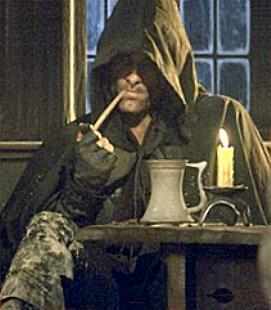










.jpg)

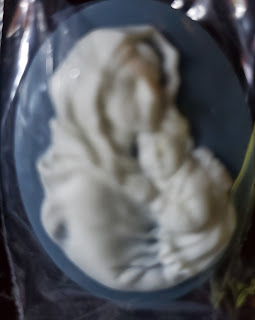

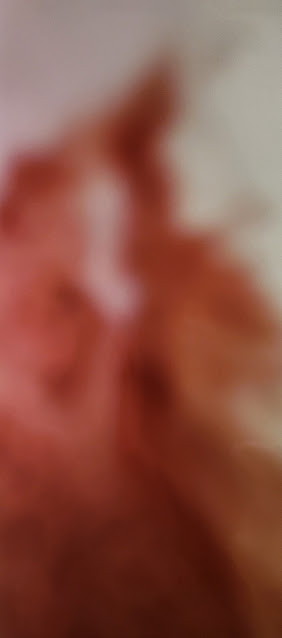
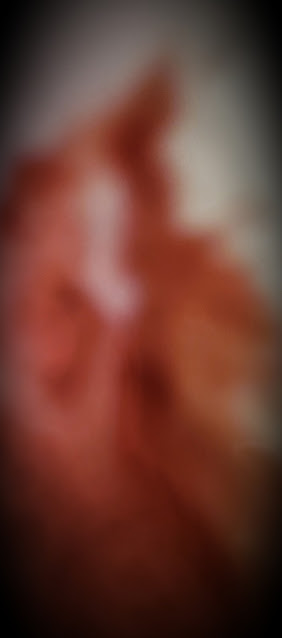

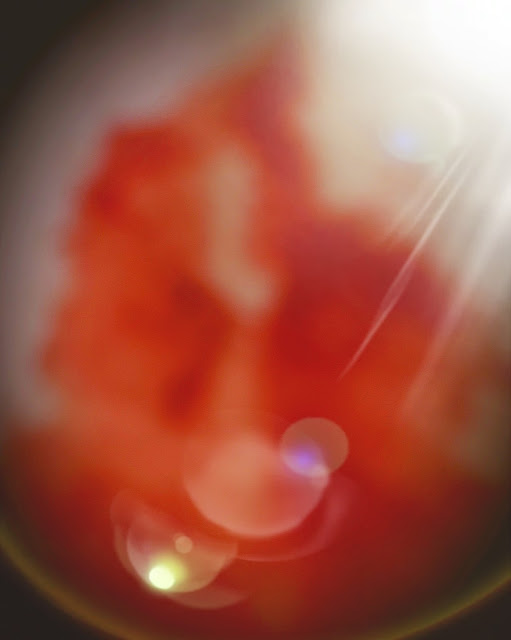




No comments:
Post a Comment
Note: Only a member of this blog may post a comment.